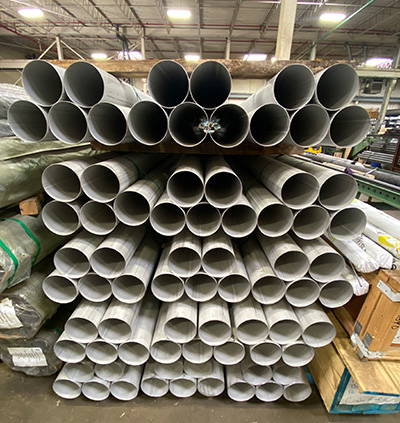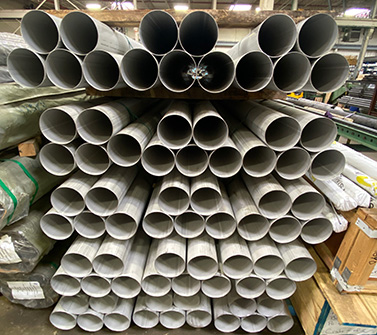
Going green is becoming more of a priority for businesses and customers alike. Industries across the globe are continuing to broaden the focus on this subject and highlight materials that best serve this initiative. Stainless steel is one of the most common and environmentally sustainable materials available that a variety of businesses commonly rely on.
At Boyer Steel, we carry a wide range of stainless steel sizes and grades to meet your custom needs.
What is Stainless Steel?
Stainless steel is predominantly made of iron and carbon, and also chromium and other alloy elements. Stainless steel must contain a minimum of 10.5% chromium, but the exact make up of the alloy will differ depending on the specific grade and intended use.
Other specific elements are added to increase durability, strength, heat and force resistance, and corrosion resistance. Stainless steel has a wide variety of applications and is commonly used in everything from aerospace and defense to automotive to medical products.
However, one of the best characteristics of this material is that it is environmentally sustainable; it is 100% recyclable.
Stainless Steel Sustainability
Stainless steel is a primary choice due to its low impact on the environment, high resistance and durability, and ultimate lower cost over its life cycle. Stainless steel production and use are only increasing over time. With the alloy’s ability to be reused and repurposed without losing its resistant properties and quality, it is an ideal resource.
Although it can be argued that stainless steel has a negative impact on the environment during the extraction process, its lifespan and ability to be continually recycled outweigh the initial negative. Because stainless steel is 100% recyclable, that means it isn’t biodegradable.
And it’s not just the stainless steel material that is reusable. Byproducts of the stainless steel manufacturing process such as slag and water can be filtered and reused for other applications too. Additionally, the majority of stainless steel today is produced using electricity and scrap alloy allowing for a reduced carbon footprint when compared to coal based power.
Health Impact of Stainless Steel
Stainless steel poses no health threats to people and it is a common material in household items including cookware, knives, and utensils. It doesn’t pose any health problems during the manufacturing process and is safe to cut, grind, and weld without risk. Additionally, stainless steel doesn’t release any toxins when it comes into contact with soil, water, or air, making it an ideal material for the health and food industries.
Want to learn more about the types of stainless steel we carry? Get in contact with a team member today!

